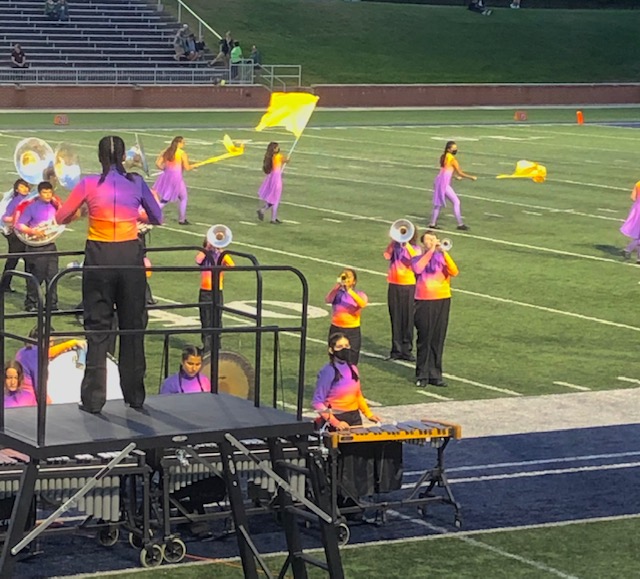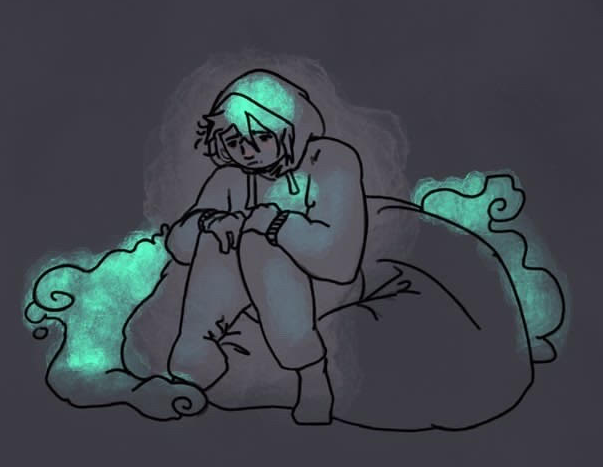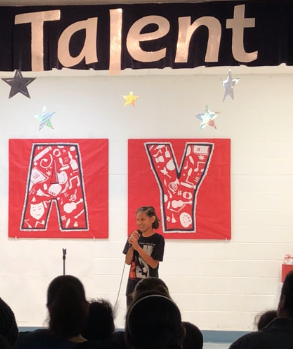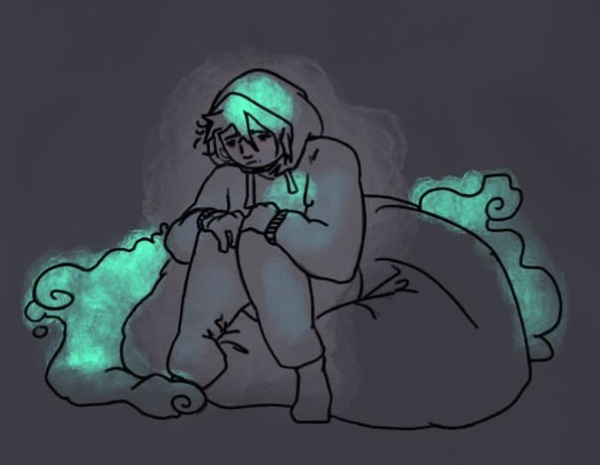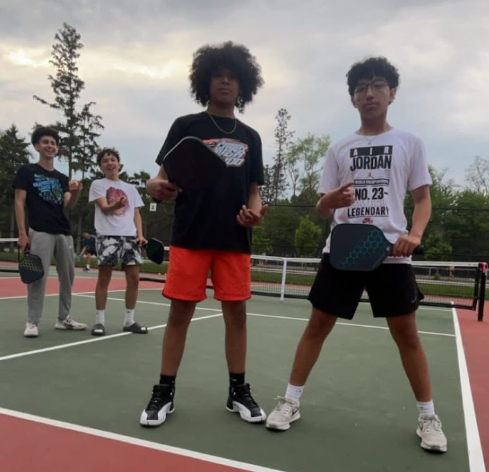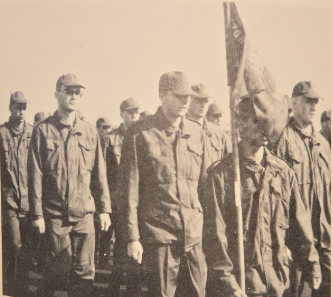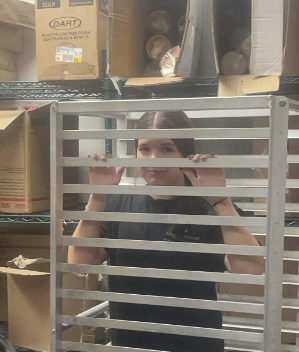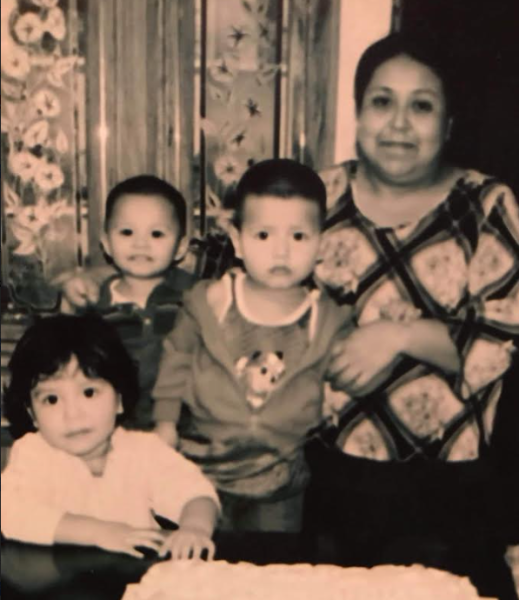A march in the right direction
The Holland High School band is dressed in bright colors as Jack takes the field for the first time.
October 7, 2021
A group of spectators cheer, “Go Jack!!!” while seated on the cold metal bleachers. Tears well in Jo Trembley’s eyes as her son marches onto the turf of the football field. Jack’s parents are overwhelmed with joy, love for their son, and a feeling of pride. Anyone who knows them knows they should be proud. Their son, Sr. Jack Trembley, finally gets to perform with the rest of the Holland High School band, a moment Jack and his family have been fighting for these past four years.
Jack was born with Periventricular Leukomalacia (PVL). Because of PVL, Jack struggles to pay attention, pick up social cues, or filter what he says. “The grey matter [of Jack’s brain] is all there and perfectly fine, which is why Jack can be in honors math classes and things like that and do fine, but sometimes making the connections— so that includes things like physical coordination and also language —can be harder,” Paul Trembley, Jack’s dad, said. Jack describes himself as “slower than others,” meaning that it takes him more time to think, process, and respond.
Holland has programs that help students with special education needs, similar to the LINKs program here at West Ottawa. These programs are so valuable. “I am in a workshop where I can just have more time doing my schoolwork and getting it done. It has been very helpful,” Jack said.
Jack was kept from marching in the band for the first two years of high school. The school was concerned for his safety and the safety of his peers on the field. “I felt a little disappointed,” Jack said, looking down at his hands. He had even been putting in extra work to be able to march with his peers.
“Once a week he would work with his physical therapist,” Jo said. “He would get pulled out of his workshop class and go to the gym with [his physical therapist] and practice walking really specifically.” Something as small and simple as marching once a week helped Jack tremendously, as well as proved to the Trembleys that the school could provide accommodations. Jo Trembley recalls using affirming phrases when trying to help Jack understand what was going on. “We used to say ‘We’re gonna prove how wonderful you are so that [those in charge] believe in you.’”
Family members, friends, and community members spoke up by sending calls, writing emails, visiting the school, all to persuade that Jack deserved to be out on the field as everyone else. The school position didn’t really start to shift until the fall of his sophomore year.
A member of the marching band had broken their leg and was in a wheelchair. Because that student had worked so hard and put so much time and energy into their practicing, the director let them perform, along with a staff member to push them across the field in their wheelchair. Finally, the pieces really started to click.
The staff realized that preventing a student from performing because they might pose a hazard for other students was unfair when there was a student being pushed around in a wheelchair. It was clear that similar accommodations should be made for Jack.
After countless meetings with administrators and members of the Special Education team, the director and the rest of the staff finally agreed to allow Jack to march. Strings were pulled and eventually, rules changed, both for the school and for the entire state of Michigan.
The Michigan School Band and Orchestra Association (MSBOA) holds and judges numerous marching band competitions. While Holland High School was working through changing its own policies, the MSBOA was also changing. Now, the MSBOA has changed a rule to allow bands with students who have disabilities, special needs, injuries, or any other circumstances that might impact their performance to have accommodations made in judging. This is a step in the right direction to including all students across the board.
“Early on I was so discouraged,” Jo said. “But, I felt like God was pricking my heart and saying, ‘You could maybe make things better for a lot of kids.’ And it was worth the heartache… The possibility that things could be better for all kids with disabilities or differences kept me hoping and fighting. And I’m very thankful that the whole state of Michigan is a better place because of a kid called Jack Trembley.”
Jack Trembley is not a hazard. Jack Trembley is not a distraction. Jack does not belong behind the scenes. He is not helpless, nor is he weak. He is not his learning disability. He is kind. He is observant. He spreads joy and laughter. Jack is curious. Jack Trembley is determined. Jack Trembley puts in the hard work and pursues what he loves. Jack deserves to be on the field, doing what he loves and what he works hard at. And Jack is not the only one.

